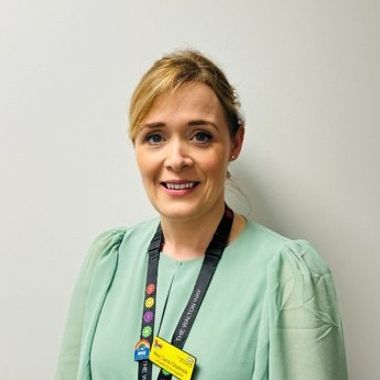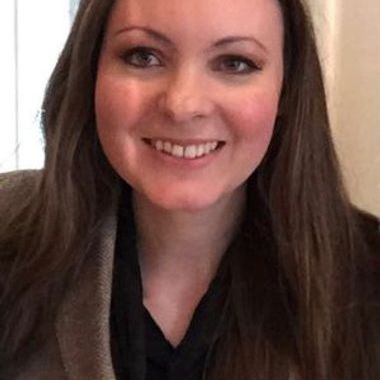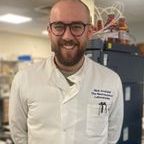Chair: Carrie Chadwick
10.15 MS, The neuroimmunology lab’s role - Nick Armfield
Multiple Sclerosis (MS) results in demyelination, axonal and neuronal loss. Oligoclonal bands (OCB) are the gold standard for the determination of intrathecal IgG synthesis, incorporated into the 2017 McDonald Criteria for MS diagnosis. OCB testing is a qualitative technique, demanding considerable experience for interpretation and assay performance. Measurement of CSF immunoglobulin free light chains (FLC), nominally κFLC, have been described as a promising alternative.
10.45 Neurofilament light chains tested in a Neurology Laboratory - Melanie Hart
The talk will focus on the clinical utility of using CSF and blood neurofilament light chain tests in the NHS, the science and pitfalls of the assays and when these are generally requested by neurologists.
11.15 Clinical aspects of the autoimmune nodopathies - Roberto Bellanti
×

Carrie Chadwick
Carrie completed her Clinical Scientist Training at South Manchester University Hospital Trust and Royal Liverpool University Hospital. She was appointed as a Principal Clinical Scientist at Aintree University Hospital and also at The Walton Centre NHS Foundation Trust in 2008, where she specialised in Neurobiochemistry and Neuroimmunology. Carrie was appointed as Consultant Clinical Scientist and Clinical Director at The Neuroscience Laboratories at The Walton Centre NHS Foundation Trust in 2013.
Carrie has a specialist interest in paraneoplastic antibodies, neurodegeneration, neuroinflammation, therapeutic drug monitoring and biobanking; she established a cerebrospinal fluid and blood bio bank at the Trust in 2016, which has since been renamed The Liverpool Neuroscience Biobank at The Walton Centre (LNBW). The LNBW has enabled collaborative translational research with local health partners. Carrie is also the current LabMed Chair for the North-West region.
Pronouns: She/her
×
Nick Armfield
Nick Armfield MSc MIBMS is a senior biomedical scientist at The Walton Centre for Neurology and Neurosurgery. Nick gained a BSc (Hons) at Liverpool John Moores University and qualified at Salford Royal biochemistry. Following a specialist role at Liverpool Clinical Laboratories, a MSc at University of Chester and over a decade’s experience in NHS laboratories, Nick is now a specialist in neuroimmunology and neurobiochemistry. The Walton Centre Neuroimmunology lab offers incite into neuroinflammation by offering the classical tests oligoclonal bands by isoelectric focussing and CSF index. With the emergence of CSF κ Free Light Chain as a marker of intrathecal inflammation, Nick’s recent work has explored the benefits of alternative laboratory markers of intrathecal inflammation. Other professional activities include published and presented works for therapeutic monitoring of ketamine and metabolites.
Prounouns: He/him/his
×

Melanie Hart
Dr Melanie Hart is a Consultant Clinical Scientist and Laboratory Director of the Neuroimmunology and CSF Laboratory (NICL) at the National Hospital for Neurology in London (UCLH) with a honorary research contract with University College London and a Fellow of the Royal College of Pathologists. As Laboratory Director she oversees a comprehensive repertoire of diagnostic NHS neurological tests the specialist centre provides to hospitals across the UK from dementia markers to autoimmune neurology tests. She is supported by the NIHR UCL Biomedical Research Centre and is a collaborator on current grants including the Blood Biomarker Challenge for Alzheimer’s Disease (ADAPT) Trial and Translation Accelerator Grant for diagnostic alpha synuclein biofluid measurement in Parkinson’s disease, working to translate these tests into clinical use in NICL. She is a committee member of the Specialist Advisory Group for Neuroimmunology at UK NEQAS and a member of the Association for British Neurologists, British Society for Immunology and Association of Laboratory Medicine.
×
Roberto Bellanti
Dr Roberto Bellanti is an MRC Clinical Research Fellow and an honorary neurology registrar at Oxford and University College London Hospitals. He is currently completing his doctoral training, supervised by Professor Simon Rinaldi and Professor Mike Lunn. His research focuses on neuroinflammation and biomarker discovery. He develops peripheral nerve specific biomarker assays using ultrasensitive technologies and stem cell-based models of immune-mediated nerve injury.



